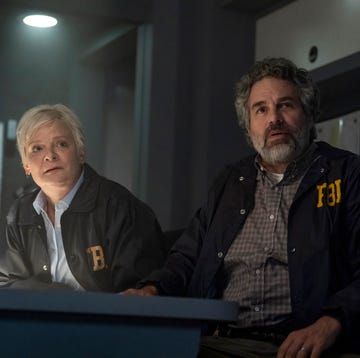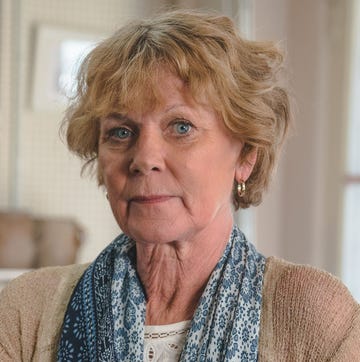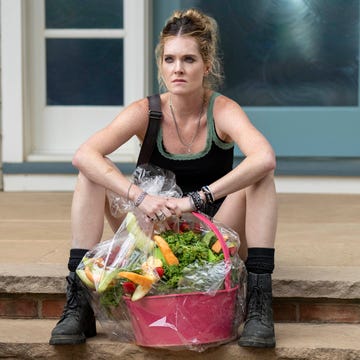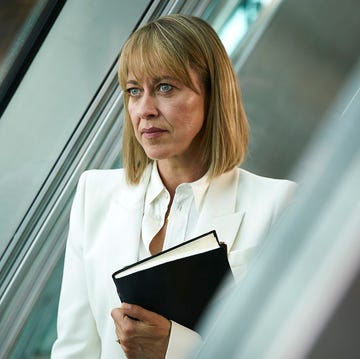The air raid sirens ring beyond the walls of the university basement which has become one of many bomb shelters in Kyiv, Ukraine. But the ominous, now familiar sound does little to impact the drama students’ rehearsal. Sitting alongside fellow aid workers, we watch as the students spin, dance and recite their lines along the sparse underground passage, in spite of the unknown waiting above. In Ukraine, life goes on.
Through my humanitarian career, I’ve worked in a range of challenging locations far from home in Newcastle - including Liberia, Mozambique and Nigeria - so my family are used to me being away for months at a time. Even so, they found my decision to move to Ukraine, for a job with the charity Concern Worldwide, particularly difficult to accept. While other areas I’d worked in presented risks, my family saw images of destruction in Ukraine every day on the news so the dangers were much more visible. But, eventually, they understood that it was where I needed to be.
It might sound cliché, but I’ve always wanted to help people. I'm lucky to have been born into a close, caring family and to have grown up in a country where I didn’t need to worry about necessities like access to water or medical care. This isn’t the case for everyone. As a teenager, I saw that first-hand when I volunteered at a rural clinic in Zambia, helping patients eat, and handing instruments to surgeons in operating theatres, before assisting in schools across various cities in Panama.
After working for other organisations around the world, I joined Concern Worldwide in Ukraine in January 2023. The charity’s mission is to end extreme poverty, initially through emergency response and then with longer-term support. There are around 70 of us working for the organisation across Ukraine - mainly Ukrainian staff plus 15 international team members from countries across Europe, Africa and the Middle East. As Head of Programmes, I liaise with representatives from donor nations like the UK, US and EU, on how their money can be spent effectively. This means spending time on the ground with the people we’re assisting, finding out what they need the most. I work predominately in the capital, Kyiv but also in Poltava (central Ukraine) and Kharkiv (one of the worst affected regions in the east), among others.
I still remember arriving in Kyiv for the first time early last year. I was struck by the huge chandelier which still hung in the capital’s train station. The grandeur jarred against the air raid sirens, which blared suddenly overhead, clearing people from the picturesque streets of a once peaceful European city.
As well as the regular air raid sirens, almost everyone has a dedicated alarm app on their phone which sends an alert. The warnings are frequent and unpredictable, coming perhaps two or three times a day as well as through the night. If there’s an alarm while I’m in the office, I head to the bomb shelter in the basement of a nearby university. If I’m in my apartment, I huddle with other residents in the building’s internal corridors, away from windows and exterior walls. At first, we won’t know if the alert means Russian planes have been spotted above or if there is an imminent air attack. The first time I heard the huge, thudding explosions of the Ukrainian defence destroying Russian missiles outside was a truly sobering experience.
In Ukraine, many people have been displaced due to the fighting or because their homes were destroyed by explosions. I’ve seen women with husbands on the frontline, looking after children and elderly parents while ploughing fields to keep the family farm going. I've met a 19-year-old raising three school-age siblings alone. Our organisation provides people like these with necessities such as food, warmth, shelter and hygiene products, and offers services including mental health support, cash assistance and vocational training. The conflict shows no sign of ending any time soon, but people still need to make a living. One man we supported lost all of the equipment for his agricultural sales business, along with his house, when he was forced to flee his hometown. Our charity was able to provide a business grant and the support for him to re-establish his business in Poltava, as well as help integrate him into his new community.
In addition to practical challenges, the conflict is taking a huge toll on Ukrainians’ mental wellbeing. Local psychologists with partner with facilitate group counselling sessions and peer-to-peer support for adults, and run play-based activities for children. In the east of Ukraine, most of the schools are closed so learning takes place online. The COVID 19 pandemic shortly before the conflict began means that some children have never physically been in school with classmates before, so the workshops promote social interaction and communication. Watching the children laughing and chasing each other reminds me of my niece and nephews, who are now six, seven and 11 years old. They’re the first people I want to see when I get my two week’s leave from Ukraine, which is around every three months. To get home, I travel across the country by train into Poland and fly back to the UK from there. I often feel guilty that I’m able to return home to safety, when it’s impossible for so many I meet every day.
Despite the destruction and terror Ukrainians live through, and how little people may have by consequence, it’s heart-warming to see kindness and resilience persist through the hardship. I’ve lost count of the number of times people have welcomed me with open arms into their homes, offering hot tea and even biscuits or small cakes.
I understand how, in the UK, it’s easy for the conflict in Ukraine to fade into the background of daily life, but the conflict is as fierce as ever. Whenever I meet someone here who is struggling, I ask myself; what would I want if this was a member of my family? I know I’d want someone to help.
Visit the Concern Worldwide website to find out more about its work in Ukraine and other locations across the world. You can also donate to support its work in Ukraine here.

















